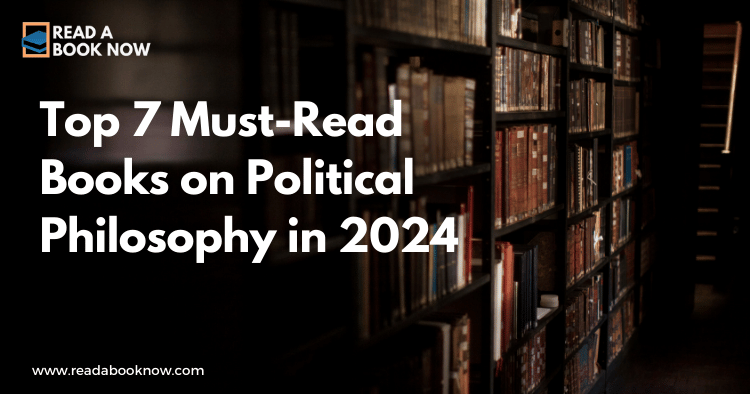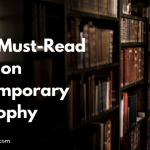Table of Contents
- Introduction
- 1. “Justice: What’s the Right Thing to Do?” by Michael Sandel
- 2. “The Republic” by Plato
- 3. “The Social Contract” by Jean-Jacques Rousseau
- 4. “A Theory of Justice” by John Rawls
- 5. “The Origins of Totalitarianism” by Hannah Arendt
- 6. “On Liberty” by John Stuart Mill
- 7. “The Wretched of the Earth” by Frantz Fanon
- Conclusion
- FAQs
Introduction
Political philosophy has the power to shape societies, influence governance, and inform individual beliefs. In 2024, with ongoing global challenges and changes, a renewed interest in foundational texts can help us navigate the complexities of modern political discourse. Whether you’re a student, a seasoned philosopher, or just curious, these seven must-read books will provide insights that resonate in today’s political landscape. Grab your favorite reading spot, and let’s dive in!
“Reading is to the mind what exercise is to the body.” – Joseph Addison
1. “Justice: What’s the Right Thing to Do?” by Michael Sandel
Overview
Michael Sandel’s “Justice” is an engaging exploration of moral philosophy and ethical dilemmas. The book takes readers through a series of thought-provoking scenarios that challenge conventional thinking about justice. Sandel masterfully intertwines philosophy with real-world issues, making it accessible to those unfamiliar with political theory.
Why Read It?
Sandel’s work encourages readers to grapple with their own beliefs about what constitutes justice in society. His exploration of utilitarianism, libertarianism, and Kantian ethics gives a comprehensive overview of philosophical thought, making it a perfect starting point for anyone interested in political philosophy.
Learn more about Sandel’s work here.
“The unexamined life is not worth living.” – Socrates
2. “The Republic” by Plato
Overview
One of the cornerstones of Western philosophy, “The Republic” presents Plato’s vision of an ideal state. Through dialogues, Socrates discusses justice, the nature of the ideal city-state, and the philosopher-king concept.
Why Read It?
Plato’s insights remain relevant as they challenge contemporary thought about governance and societal structure. His discussions on the roles of education, class, and morality invite readers to reflect on their own society’s values.
Explore more about Plato’s philosophy on Stanford Encyclopedia of Philosophy.
“Justice means minding your own business and not meddling with other men’s concerns.” – Plato
3. “The Social Contract” by Jean-Jacques Rousseau
Overview
In “The Social Contract,” Rousseau posits that legitimate political authority relies on a social contract agreed upon by all citizens. He famously stated, “Man is born free, and everywhere he is in chains,” highlighting the tension between individual freedom and societal constraints.
Why Read It?
Rousseau’s arguments about the general will and popular sovereignty are pivotal in understanding modern democratic principles. His work encourages readers to consider the balance between individual rights and the common good.
Find more about Rousseau’s impact on political thought here.
“The strongest is never strong enough to be always the master, unless he transforms strength into right and obedience into duty.” – Jean-Jacques Rousseau
4. “A Theory of Justice” by John Rawls
Overview
John Rawls’ “A Theory of Justice” introduces his principles of justice as fairness. He argues for a society structured so that the least advantaged are supported, presenting the original position and the veil of ignorance as thought experiments.
Why Read It?
This book is essential for understanding contemporary debates on justice, equality, and political philosophy. Rawls’ ideas continue to influence discussions on social justice and economic policies today.
Learn more about John Rawls’ theories at the Stanford Encyclopedia of Philosophy.
“Justice is the first virtue of social institutions, as truth is of systems of thought.” – John Rawls
5. “The Origins of Totalitarianism” by Hannah Arendt
Overview
Hannah Arendt’s “The Origins of Totalitarianism” is a profound analysis of totalitarian regimes, exploring the roots of Nazism and Stalinism. Arendt examines how these movements gained traction and the implications for society and humanity.
Why Read It?
Arendt’s work is a crucial read for anyone interested in the dynamics of power, authority, and the potential for tyranny in modern societies. Her insights are particularly relevant as we analyze current political trends around the globe.
Discover more about Arendt’s work at the Hannah Arendt Center.
“The sad truth is that most evil is done by people who never make up their minds to be good or evil.” – Hannah Arendt
6. “On Liberty” by John Stuart Mill
Overview
John Stuart Mill’s “On Liberty” advocates for individual freedom and the limits of state power. Mill argues that personal liberty is paramount, provided it does not harm others, establishing a vital framework for discussions on civil rights.
Why Read It?
Mill’s arguments about freedom of speech, personal autonomy, and societal progress inspire today’s conversations about individual rights and freedoms. His emphasis on the importance of dissent remains timely in our current political climate.
Read more about Mill’s contributions to liberal thought here.
“Over himself, over his own body and mind, the individual is sovereign.” – John Stuart Mill
7. “The Wretched of the Earth” by Frantz Fanon
Overview
Frantz Fanon’s “The Wretched of the Earth” examines the psychological and political effects of colonialism. Fanon argues for the necessity of violence in decolonization and critiques the post-colonial leadership that emerges.
Why Read It?
Fanon’s work transcends political philosophy, touching on issues of identity, race, and liberation. His insights are vital for understanding the complexities of post-colonial societies and continue to inspire movements for social justice.
Explore more about Fanon’s influence on political thought here.
“For the colonized, life can only be understood as the violent affirmation of their identity.” – Frantz Fanon
Conclusion
As we navigate the political landscapes of 2024, these seven must-read books on political philosophy will equip you with the essential tools to engage in thoughtful discussions and deepen your understanding of justice, authority, and freedom. Each text offers a unique perspective that remains relevant in our ever-evolving world. So, pick a book, dive in, and let your intellectual journey begin!
“The only thing necessary for the triumph of evil is for good men to do nothing.” – Edmund Burke
FAQs
Q1: Why is political philosophy important?
A1: Political philosophy helps us understand the principles underlying political systems and ideologies, guiding our thoughts on justice, rights, and governance.
Q2: How can I start reading these books?
A2: Begin with a book that resonates with your interests. Many of these texts are available in various formats, including audiobooks and e-books, making them accessible for all readers.
Q3: Are these books suitable for beginners?
A3: Yes! While some texts may involve complex ideas, many are written in an engaging manner that invites readers to explore fundamental concepts, making them suitable for beginners.
Q4: Where can I find these books?
A4: You can find these books at local bookstores, libraries, or online retailers like Amazon or Barnes & Noble.
Feel free to share your thoughts or any other recommendations in the comments below! Happy reading!




